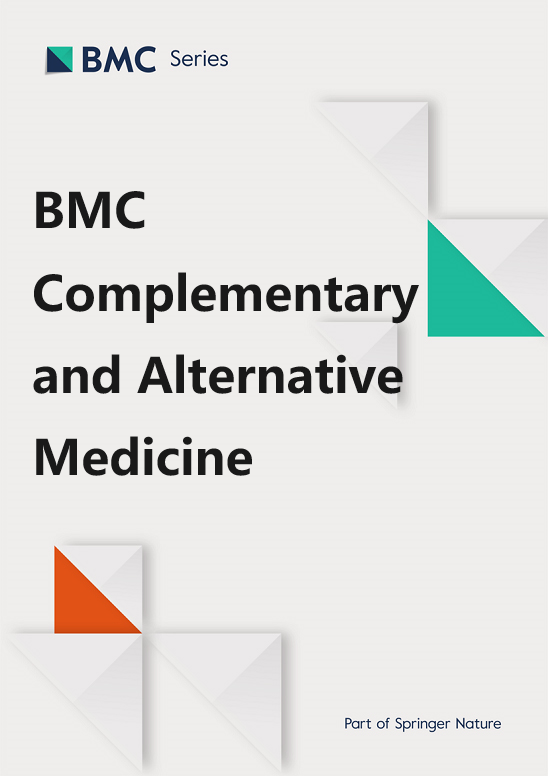Factors influencing the use of natural health products, in particular for concentration and cognition in Germany
IF 3.4
2区 医学
Q1 Medicine
引用次数: 0
Abstract
Natural health products (NHP) are an important part of the healthcare system. They are mainly non-prescription and sold over the counter, which requires active decision making by the consumer. Within the framework of the Complementary and Alternative Healthcare Model, this study aims to identify factors that influence NHP usage, in particular related to concentration and cognition (CC), a topic that concerns all ages and social classes within the population. Data were collected by means of a representative online survey (n = 1,707) in Germany in April 2022. Three user groups were defined: NHPCC users, who used NHP for CC (12 month prevalence); nCC-NHP users, who used NHP but not for CC indications (12 month prevalence); and past NHP users, who have used NHP but not within the previous 12 months. Independent influencing variables were categorized into predisposing, enabling, need, and health service use factors. Data were analyzed with descriptive statistics, inferential statistics, and binary logistic regression models to compare NHPCC users to nCC-NHP users (model 1) and to past NHP users (model 2). A higher share of NHPCC and nCC-NHP users compared to past NHP users were women, self-medicated with NHP, and used information about NHP provided by health professionals or on product. Their openness-to-change value orientation was more pronounced than of past users. Compared to nCC-NHP and past NHP users, the probability of being an NHPCC user increased if an individual had more difficulties in daily attention and memory performance, made use of health professionals and literature to seek information about NHP, and used NHP for health support and illness prevention. Additionally, a female gender, NHP self-medication, and having higher values of self-transcendence were significant indicators for NHPCC usage compared to past NHP usage. NHP manufacturers, health professionals, and policymakers should be aware of the factors that lead to NHP consumption decisions and consider them in the development and optimization of healthcare strategies as well as in the marketing and communication strategies of companies producing NHP, in particular for CC. The current study can contribute to characterizing the target groups and to defining the aims and communication channels of such campaigns.影响使用天然保健产品的因素,特别是在德国影响注意力和认知能力的因素
天然保健产品(NHP)是医疗保健系统的重要组成部分。它们主要是非处方药,在柜台销售,这就要求消费者做出积极的决策。在 "补充和替代医疗保健模式 "的框架内,本研究旨在确定影响 NHP 使用的因素,特别是与注意力和认知(CC)有关的因素,这是一个涉及所有年龄段和社会阶层的话题。数据是通过 2022 年 4 月在德国进行的代表性在线调查(n = 1,707)收集的。调查界定了三个用户群体:NHPCC 用户,使用 NHP 用于 CC(12 个月流行率);nCC-NHP 用户,使用 NHP 但不用于 CC 适应症(12 个月流行率);以及过去的 NHP 用户,使用过 NHP 但在过去 12 个月内未使用过。独立的影响变量分为诱发因素、促成因素、需求因素和医疗服务使用因素。通过描述性统计、推断性统计和二元逻辑回归模型对数据进行分析,比较 NHPCC 使用者和 nCC-NHP 使用者(模型 1)以及过去的 NHP 使用者(模型 2)。与过去的国家卫生计生委用户相比,国家卫生计生委和国家卫生计生委-国家卫生计生委用户中女性比例较高,她们自行服用国家卫生计生委药物,并使用卫生专业人员或产品上提供的国家卫生计生委信息。与过去的使用者相比,他们的开放性价值取向更为明显。与 NCC-NHP 和过去的 NHP 使用者相比,如果一个人在日常注意力和记忆表现方面有更多困难,会利用卫生专业人员和文献来寻求有关 NHP 的信息,并使用 NHP 来支持健康和预防疾病,那么他成为 NHPCC 使用者的概率就会增加。此外,与过去使用非保健品相比,女性性别、非保健品自我药疗和自我超越价值观较高也是使用非保健品化学中心的重要指标。非物质文化遗产制造商、卫生专业人员和政策制定者应了解导致非物质文化遗产消费决策的因素,并在制定和优化医疗保健战略以及生产非物质文化遗产(尤其是用于CC的非物质文化遗产)的公司的营销和传播战略时考虑这些因素。目前的研究有助于确定目标群体的特征,并确定此类活动的目的和传播渠道。
本文章由计算机程序翻译,如有差异,请以英文原文为准。
求助全文
约1分钟内获得全文
求助全文
来源期刊

BMC Complementary and Alternative Medicine
INTEGRATIVE & COMPLEMENTARY MEDICINE-
CiteScore
7.00
自引率
0.00%
发文量
0
审稿时长
3 months
期刊介绍:
BMC Complementary Medicine and Therapies is an open access journal publishing original peer-reviewed research articles on interventions and resources that complement or replace conventional therapies, with a specific emphasis on research that explores the biological mechanisms of action, as well as their efficacy, safety, costs, patterns of use and/or implementation.
 求助内容:
求助内容: 应助结果提醒方式:
应助结果提醒方式:


